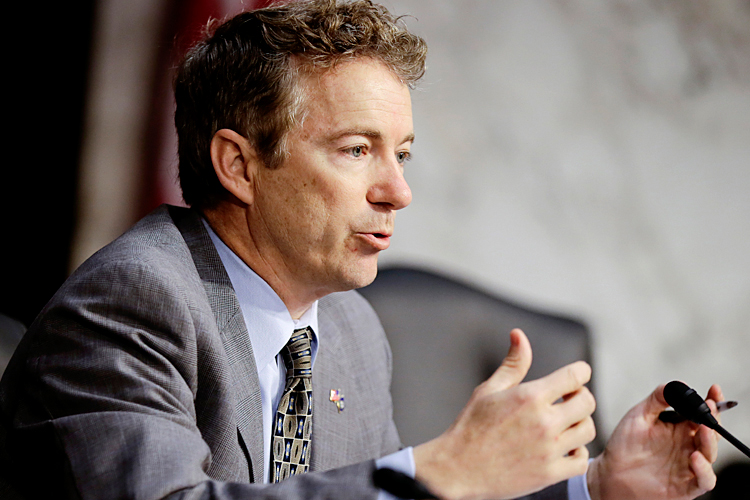President Obama’s foreign policy disasters have been so bad that he’s beginning to make Jimmy Carter look good. But if there is an upside to the U.S. abandoning our friends and kowtowing to our enemies, it’s that it’s forcing conservatives—and especially those who are considering a 2016 presidential run—to begin debating and outlining a coherent conservative foreign policy.
Videos by Rare
We saw the beginnings of a foreign policy debate during the summer between Sen. Rand Paul (R-Ky.) and New Jersey Gov. Chris Christie (R). Christie represents the pro-interventionist faction of the GOP that thrived during the George W. Bush presidency. However, a growing number of conservatives seem to back Paul in returning to their “reluctant engagement” roots (my term). Such a debate is long overdue.
The country had a real foreign policy debate in 1980 when Ronald Reagan challenged incumbent President Jimmy Carter, who, like Obama, was as bad on foreign policy as he was on domestic policy. Those were dangerous times and Reagan campaigned for changing direction, challenging Soviet expansionism and restoring the strength of, and respect for, the U.S. and its military.
Reagan’s foreign policy theme was “peace through strength,” though to friends he said the goal was “we win, they lose.” And, at least with respect to the Cold War, we did win.
While the world today is a very different place, the dangers are just as real and challenging. For one thing, it’s hard to know exactly what a “win” in the war on terror looks like, or when we’ve achieved it. And the public is understandably tired of protracted and costly—in blood and money—wars, especially those that don’t seem to have an endgame or exit strategy.
Instead of Reagan’s “peace through strength” philosophy, Mr. Obama initially embarked on what might be called a “peace through apologies” approach. But he soon embraced most of Bush’s foreign policies—much to the chagrin of the left.
The neo-conservatives support an activist foreign policy role in which the U.S. aggressively uses its wealth and firepower to promote freedom and democracy.
Traditional conservatives have generally supported U.S. interventionism as a last resort, not a first. They believed the U.S. should avoid what Thomas Jefferson called “entangling alliances” unless there is a compelling reason to get involved. That’s not isolationism—the immediate accusation hurled at those who have doubts about intervention—it’s reluctant engagement. But in developing a coherent foreign policy, several questions must be considered:
When should the U.S. intervene in the affairs of other countries?
The usual response is “when it’s in U.S. interests,” which is right as far as it goes, but that notion is much too vague to actually convey any meaning. What exactly are U.S. interests? Self-defense from a direct attack is certainly in our interest, but what about an indirect attack through cyber warfare? What if a belligerent country attacks a close ally?
What is the role, if any, of foreign aid?
The role of foreign aid seems to have shifted under Obama from helping the good guys to helping the bad guys. We’ve seen it in the debate over whether to continue foreign aid to Egypt. The hard-core foreign-aiders only switched their position after the strongly anti-American/anti-Israel government of Egypt was kicked out. We send signals based on who we fund, and we shouldn’t be surprised if those signals can be misinterpreted.
Under what circumstances will U.S. force be used?
Obama’s answer seems to be when he’s under a lot of international or political pressure to do so. That’s not a very poor guide for when to put U.S. lives and money at risk.
How far can the president go in prosecuting a foreign war before needing the consent of Congress?
A sticky issue with broad constitutional implications: the president conducts foreign policy but only Congress can declare war—and fund it. At least Obama went to Congress on the Syrian issue, but he dodged such oversight when he attacked Libya.
It is high time that the country had a full and substantive debate over foreign policy—including the principles that will guide the next administration. If conservatives believe that government should have a limited and clearly defined role in the lives of its citizens, why shouldn’t that principle apply to government’s involvement in other nations?
Merrill Matthews is a resident scholar at the Institute for Policy Innovation in Dallas, Texas. Follow on Twitter @MerrillMatthews



